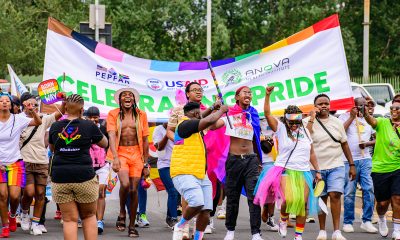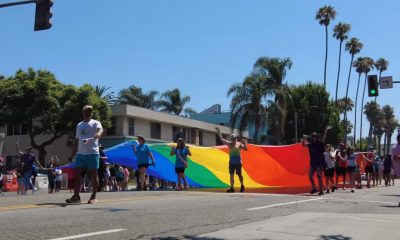California
Generation Next
Emerging leaders generate inspiration
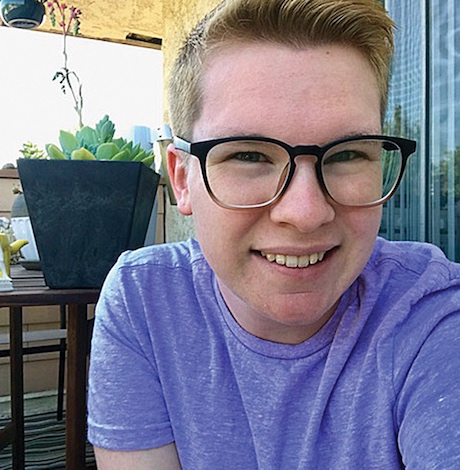
What is Pride? The most serviceable answer, of course, is that Pride is a commemorative event in which the LGBTQ community celebrates our triumph over adversity and the leaders who fought to make the world a more inclusive place. Historically, it was a political statement — a show of visibility and a forum for protest against homophobia.
And since the beginning of President Trump’s tenure, Pride feels political once more. This year’s celebration will pull from the civic engagement of the March for Our Lives and #Resist movements, spotlighting LGBTQ leaders while re-engaging in the community’s fight for social, legal, and political equality.
Much of that work did not begin, and it will likely not end, with the Trump administration. New research has found LGBTQ girls of color are disproportionately over-disciplined in schools, where they also face bullying and are ostracized. These challenges often push them out of the classroom and into the criminal justice system. And now that Betsy DeVos helms the U.S. Department of Education, prospects for many of our community’s most vulnerable youth are even grimmer.
At the same time, this year the country has witnessed the power of young people in bringing change. The young LGBT folks from the Los Angeles area profiled in these pages are speakers, students, advocates and artists. They have each made meaningful contributions in areas including climate change policy, battles against homophobia and transphobia, housing equality, and immigration.
As the LGBTQ community has witnessed and experienced a reversal in progress over the last two years, young leaders have offered hope for a better way forward. Another signal of the direction in which the arc of justice is headed: The decision by Boy Scouts of America to welcome girls into their ranks, and, effective next year, change the organization’s name to Scouts of BSA. Since the 1970s, women’s and LGBTQ advocates have lobbied the Scouts to adopt more inclusive policies. And in those battles, waged in and outside the courtroom, they have been ultimately victorious.
May these stories, challenges and history inspire you. Happy Pride.
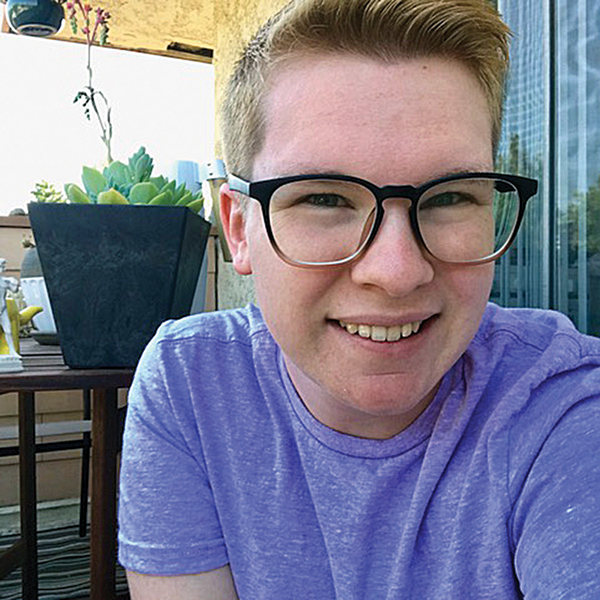
(Photo courtesy of Twitter)
Casey Hoke, 21, college student, LGBTQ advocate, artist
Casey Hoke is a fine artist, graphic designer, writer, activist, and advocate who was awarded a prestigious POINT Foundation scholarship to fund his education at California State Polytechnic Institute in Pomona, where he is now a junior pursuing a B.A. in Graphic/Communications Design with a minor in Art History. His past and present leadership appointments include a Student Media Ambassadorship for GLSEN, where he also holds membership with the National Executive Board.
Drawing from his experiences as a young trans man, Casey has spoken and written about subjects including education policies that concern transgender students, the representation of transgender people in the media, and the relationship between artistic self-expression and self-acceptance. His work has appeared in MTV News, Teenlife Media, and The Huffington Post, where he has blogged since 2014. Casey has delivered speeches at forums including a TEDx conference and Intel Labs’ LGBT Youth Leadership Forum.
Casey attended high school in Louisville, Kentucky. He came out as trans during his sophomore year. While fellow students, for the most part, were accepting of Casey, he explained the school’s Principal Gerald “Jerry” Mayes was a bully. In March, The Louisville Courier-Journal published a timeline of an ongoing investigation by Jefferson County Public Schools into Mayes’ conduct that was initiated in response to his treatment of trans youth, including Casey, as well as racially insensitive comments he made to two African-American students.
During his junior year, Casey was the subject of an article in the school’s newspaper that chronicled his journey and highlighted his advocacy work. In response, Casey explained, Mayes told members of the student newspaper staff that it was “wrong to profile a misfit going through a phase. He said it would be comparable to writing about someone who wanted to shoot up a school.” The following year, in 2015, as the state’s senate introduced a bill that would require transgender students to use restrooms that match the sex listed on their birth certificates, Casey said Mayes asked a security guard to monitor him in the men’s restroom. The principal then called Casey into his office and began asking invasive questions about his body and genitalia.
“It’s hard to talk about,” Casey said, “but I came out with my story because it needed to be heard, and because his treatment of LGBTQ students in my high school was, and still is, really bad.” Those experiences strengthened Casey’s resolve to advocate for the rights of trans students.
In college, Casey and his trans peers face a variety of administrative challenges. Changing one’s name on student ID cards is a difficult process. Freshmen, who are required to live on campus, must pay more for housing that offers single-stall restrooms (which are safest for transgender students)—a difference in cost that amounts to about $10,000. Administrators outed Casey to other staff and even students, despite his request that they keep information about his gender identity private. Casey has since led petitions that demand equal and affordable housing for trans students, as well as training programs on trans identity for university staff.
“My advocacy did not stop at high school, where I had this mean principal”, he said. “Even though I’ve seen trans folks accepted a bit more, publicly, there are still battles I have to face here in California.”
Casey’s interest in media representation of LGBTQ people and subjects overlaps with his interest in art. A project and educational resource that Casey created and curates, Queer Art History (housed online at queerarthistory.com) showcases a breadth of artwork, from a homoerotic 16th century Roman fresco to a poster produced by ACT UP Los Angeles in 1990. On the project’s website, Casey has written about the cultural and historical significance of each.
This project, he said, allows him to “talk about media representation while educating people of all ages on queer visual history, art, and culture.” Through another program, Art, Identity & YOU, which Casey created and administers in coordination with the Los Angeles LGBT Center, he provides a platform for youth education on identity, art, history, and self-expression.
Must modern queer art be political? Not necessarily, Casey said—it certainly can be, but queer art can also signify something as timeless as self-expression or look as visually diverse as abstract expressionism. Plus, the treatment of queer people as inherently political, Casey said, can be dehumanizing.
At a time in which major American cities have often become canvases for anti-Trump graffiti, contemporary queer art certainly feels political. And much of it borrows from the signage of protest art produced in the 1980s and 90s (A good example: Donald Moffett’s He Kills Me, a 1987 lithograph that features a grid of President Ronald Reagan’s grinning headshot with “THIS GUY KILLS ME.” in bright orange type across his chest.)
Through the POINT Foundation, Casey was connected with a mentor who works for the Walt Disney Company, where he aims to secure a design position post-college. He is optimistic about both his future and the direction in which society is headed, despite the anti-LGBTQ policies of the Trump Administration. “I asked Mara Keisling, executive director of the National Center for Transgender Equality, how things are looking for young trans and non-binary folks”, Casey said. Reflecting on the progress that’s been made so far, Keisling responded: “You know what? We’ve gotten here.”
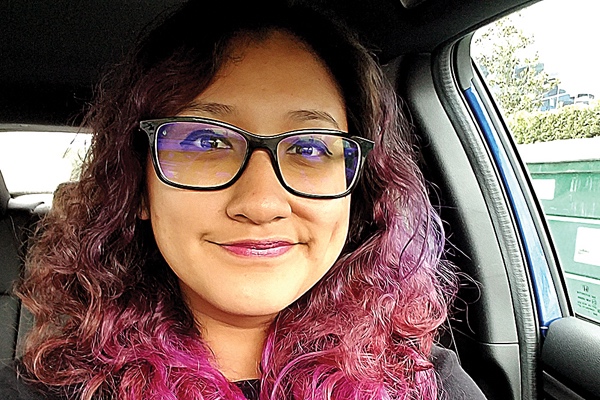
(Photo courtesy of Nunez)
Priscila ‘Pea’ Alegria Nunez, 23, documentarian and cinematographer
“The stories that I’m passionate about sharing and telling are about the Latinx community and LGBTQ community. It’s very important for me to highlight our voices, as immigrants who are fighting back.”
Pea is a documentary filmmaker, an artist whose work reflects their lived experiences as a pansexual non-binary immigrant who, at 15, left Peru with their mother for the professional and educational opportunities available in the United States.
A recent graduate of the acclaimed film program at the University of California, Los Angeles (UCLA), this year Pea was awarded a Rising Star Grant from GLAAD to fund their virtual reality (VR) project about the networks that immigrants have built to support and defend their communities. The film is led by a lesbian protagonist who left Honduras for the United States.
“Throughout the US, immigrant families they have this traumatizing event in which they are visited by [Immigrations and Customs Enforcement (ICE)]”, Pea explained. “Our protagonist is going to college, and she’s using her knowledge and her network to bring an emergency community back to her house. We will see how that event develops because of how many people will show up to help fight back.”
As an immigrant who belongs to the LGBTQ community, Pea is inspired most by the stories of people who occupy both of those identities. “I found that the projects that bring me the most fulfillment are those that find that intersection.”
Pea and their mother had green cards when they left Peru. They landed in Sacramento, where Pea says their high school was nationally recognized for the racial and ethnic diversity of its student body. “It was incredible to be surrounded by so many brown people—by so many inspiring, motivational people.”
At UCLA, Pea’s classes in gender studies opened their eyes to the identities that do not fall into the gender binary, which gave them the space to inhabit gender-neutrality, along with the freedom to dress and use pronouns in non-traditional ways. “It was another coming out for me. I’d already come out as bisexual, but then again as pansexual.” (The latter is defined by the absence of limits with regard to sexual choice in gender or activity.) Coming out to their mother—who understands Pea is attracted to both men and women—as non-binary, Pea said, is something of a work-in-progress, an ongoing journey.
Respective to both their personal life and professional work, Pea focused first on their immigrant identity and the stories of other immigrants more broadly before working to explore how sexual orientation and gender identity come into play.
Night of Cultura, a Latinx club of artists at UCLA, was a forum in which Pea found some of their closest friends and most valuable professional networks. The group creates plays, sketches, spoken word poetry, dances, and films—works that often include LGBTQ subject matter. “It was a space where I really felt like I blossomed.” After screening a 5-minute documentary at a Night of Cultura event, Pea met a UCLA alum in the audience who would later become the screenwriter for their VR project.
As a filmmaker, Pea is moved by the audience’s reaction to their work. “You can hear gasps; you can hear sniffles; you can hear laughter. I think that’s so beautiful because you wonder what’s going on in their hearts. There is a chance of really reaching people. There is hope that your project, that your work, will touch people.”
On the challenges brought forth by attacks on LGBTQ and immigrant communities from the Trump administration, Pea is optimistic about the role of the artist. “It’s important that we creators continue making work, regardless of the political climate. It’s important to keep creating, because who is going to do it, if not us?” Immigrants and LGBTQ folks should tell their own stories, Pea said, because that way the diversity within those communities will be reflected in the broader cultural narrative.
In hindsight, Pea feels they should have explored and expressed their sexual orientation and gender identity earlier in life. “I felt like I needed to be compliant to what my mom wanted—to her expectations. I could have been so much happier, if I had not waited and instead just been myself.” Pea’s message to LGBTQ teenagers: “Come out to your friends first, because there is something to be said for finding your family outside the family you grew up with. Find yourself a queer family. When you do, you’ll be amazed how powerful you’ll be.”
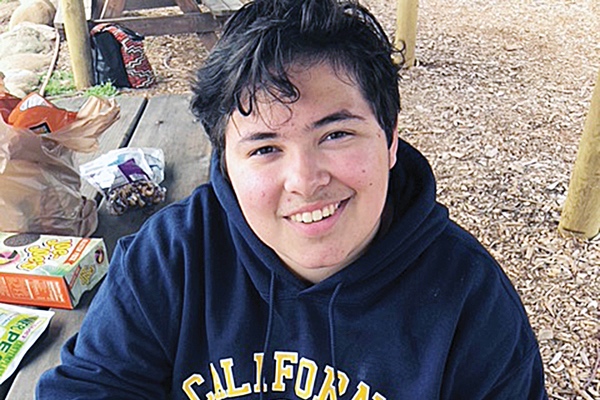
(Photo courtesy of Reyes)
Aris Reyes, 16, high school student, LGBTQ advocate
Aris is a 16-year-old high school student who aspires to a career in politics, business, law, or, perhaps all three.
Though only a junior, Aris has emerged as a leader at USC East College Prep, a new high school of which his will be the first graduating class. He founded both the student government and the GSA club, where he now serves as president.
As a young trans Latino man and LGBTQ advocate, Aris has built bridges between his school’s students and staff, as well as between his peers and organizations dedicated to LGBTQ youth education and empowerment.
He helped to spearhead the LGBTQ School Climate Resolution, a comprehensive survey that collects information about a school’s educational atmosphere respective to LGBTQ issues. Aris was not entirely surprised to learn 80 percent of his classmates had either often or occasionally heard homophobic remarks from other students. On the other hand, only 10 percent of student respondents heard their teachers say something objectionable about LGBTQ people, which is consistent with Aris’s perception that educators at his school are more liberal and tolerant.
With data from the survey, Aris approached his teachers about ways they could help improve the school’s record on LGBTQ issues. He cited California’s FAIR Education Act, which, among other requirements, obligates teachers to include LGBTQ historical figures in their lesson plans. The law applies only to the state’s public schools, so teachers who work at Aris’s charter school are free to create their own lesson plans—and there, he said, there is room for substantial improvement.
Aris worked with the Latino Equality Alliance’s (LEA) youth council to coordinate a speaking engagement at his school that featured a representative from the ONE Archives of the University of Southern California (USC). “They talked about LGBT leaders and advocates”, he said, “including some people I’ve never heard of in my life.”
The organization administered 10 workshops throughout the year, including the Unconditional Love Rally, where Aris spoke about transphobia and his personal journey toward self-acceptance. The program required registrants to get prior approval from their parents, but Aris worked with school administrators who agreed to count the rally toward community service hours—which helped to bolster attendance.
Aris opened up to his mother about his gender identity in eighth grade and the following year came out to friends, teachers, and classmates. Like many transgender youth, Aris struggled with body image issues and depression. Not yet out to his father and living in a body that did not reflect his gender identity, while a freshman Aris was placed in a three-day psychiatric hold. There, he was isolated away from other patients—and told by nurses he could not be placed in units segregated by gender because he is neither male nor female. This, in spite of the fact that Aris explained he is a transgender man.
Back at school, Aris is sometimes asked probing questions by other students concerning his anatomy. “My school is in Lincoln Heights in Los Angeles”, he explained, “and Hispanic culture is not always that accepting of LGBTQ people.” Teachers, by contrast, have been more welcoming—he only needs to remind them, occasionally, to not mis-gender him.
Administratively, Aris has met challenges such as the attendance roster and the separation of girls and boys in advisory periods. “It can be isolating”, he said.
Involvement in advocacy programs and social clubs has allowed Aris to build a sense of community and work on behalf of issues that are important to him. “Even within the LGBT community”, he said, “I feel like trans people are left out a lot.” The separation of gender and sexuality in the discussion of LGBTQ issues, as well as the ways in which we introduce these topics to young people, is important to Aris. The conflation of sexual orientation and gender identity, he said, can cause misunderstanding.
Aris also hopes the Hispanic/Latino communities will begin to adopt more progressive attitudes toward LGBTQ people. He feels less tolerant attitudes exist primarily among older generations. “Friends have told me”, he explained “‘My mom doesn’t like you because you’re trans.’ It’s just sad—just because of that, like, [they don’t care] about everything else I do, what a good kid I am, my grades or my education.”
Homophobia and transphobia will always exist, Aris said, and “people are scared of things they don’t now”. Looking to the future, he is more interested in effecting change through policy. “For me, really what matters is the legislation—that’s what changes everything. If you’re a lawyer or a president or lobbyist, you’re in a position to change things.”
Aris expects to continue working on behalf of LGBTQ causes. “After I graduate”, he said, “I hope to go to college. I want to get really involved in my college.”
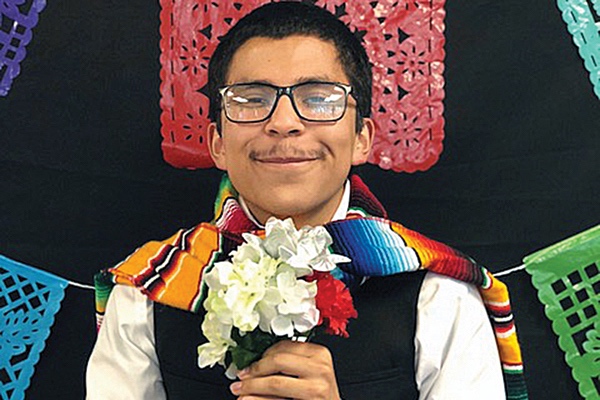
(Photo courtesy of Medina)
Alex Medina, 18, student journalist, LGBTQ advocate
Alex Medina is a student journalist who has authored more than 20 articles for his local newspaper, the Boyle Heights Beat, which covers news and feature stories in and around the downtown Los Angeles neighborhood.
He will soon graduate from high school and is eager to begin his freshman year at Hamilton College, a selective liberal arts university in update Clinton, New York. Then, Alex hopes to work toward a career in journalism. And he also has designs to start an organization dedicated to youth and the media.
Much of Alex’s work for Boyle Heights Beat is focused on LGBTQ issues, which he considers especially important because, particularly in decades past, LGBTQ people are often portrayed negatively. He said that spotlighting the work of advocates and activists helps to usher in progressive change while also offering role models for young people. Additionally, Alex has written about subjects important to immigrant communities—such as the census and the Free Application for Federal Student Aid (FAFSA)—as well as local politics and business.
For two years, Alex has served as president of his school’s GSA club, where he led efforts to curb the use of derogatory language and anti-LGBTQ slurs. In conversations with the student body, Alex and members of the club worked to encourage their peers to be more conscious of the language they use. “I used to get bullied when I was younger. So, it’s important to me that we have these conversations”, he explained, especially for the benefit of young LGBTQ folks.
Beyond the GSA, Alex works on behalf of a variety of causes that reflect the diversity of the subjects he has written about. Through his involvement with the Latino Equality Alliance (LEA), for example, Alex has advocated for policies that would help to curb the school-to-prison pipeline.
Alex credits many of his accomplishments to the unwavering support he’s received at home. His parents, who immigrated to Los Angeles from Mexico, have been involved with organizations like PFLAG—where they engage with other parents, many of them Latino, to facilitate conversations about accepting their children’s sexual orientation and gender identity.
It can be challenging work, he said. LGBTQ identities are often not discussed within Latino communities. “Youth often don’t come out to their parents because they’re afraid how their parents will react,” he explained. “When Latino people [immigrate to the US], there are prejudices—often formed by the things they heard when they were growing up—and they often bring that with them. It’s also generational.”
While young people have overwhelmingly adopted more positive positions on LGBTQ issues, change can also be witnessed in traditionally-conservative milieu, such as the Catholic Church. Just a few weeks ago, Pope Francis told a gay man, “God made you like that.” Alex agreed about the direction in which organized religion seems to be heading, at least concerning Catholicism. “With the Pope being more accepting,” he said, “it’s getting better. At my own church and at the other church I’m involved with, they’re accepting of me and the pastors communicate very positively about it.”
The role played by organizations, like PFLAG, that offer programs and resources for LGBTQ youth and allies is really important, Alex said. “In schools there often isn’t much awareness, even if there is acceptance, so these organizations help to fill in and offer resources—including condoms, and healthcare referrals—that are not available in school. There are a lot of events and opportunities available through those organizations that students wouldn’t otherwise know about. It’s important for parental acceptance as well.”
Alex feels the tremendous progress the LGBTQ community has witnessed over the years would not be possible if advocates and activists were not optimistic about their odds. “We wouldn’t have the movement we have today without people who brought awareness about things like AIDS, DOMA, and [same-sex] marriage”, he said. Beyond the fight for political equality, Alex feels adopting a positive attitude is important for building friendship and community.
Another corollary goal of Alex’s: Increasing the visibility of young people who are working to effect change. “A lot of times”, he said, “youth don’t see themselves represented. It’s important to bring attention to the work young people are doing to build a better future for themselves and for future generations of youth”.
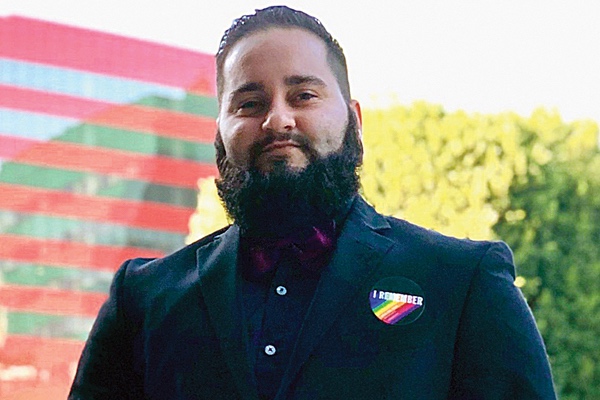
(Photo courtesy of Akbarian)
Rudy Akbarian, 28, trans-Armenian veteran, aspiring barber
Rudy Akbarian is a transgender man, the son of Armenian immigrants, and a veteran who served in the U.S. Army from 2011 to 2016. He has also worked on behalf of LGBTQ youth, specifically homeless youth, and next month will begin studying to become a barber.
Before today, Rudy has spoken out twice about policies concerning the inclusion of openly-trans men and women in the military. In 2016, he praised the historic decision by former Defense Secretary Ashton Carter to welcome transgender people into the armed forces. Then, last year, he denounced President Trump’s reversal of that policy but pledged to keep up the fight: “I’ve had too many people supporting me to just give up,” he said. “So, I don’t plan on doing that.”
Today, Rudy responded to reports from Tuesday that 100 members of Congress have submitted a letter to Defense Secretary James Mattis, urging him to reconsider the Administration’s decision to bar openly trans men and women from military service.
“That’s awesome,” he said. “But I don’t know what [Trump’s] reasoning was for not allowing trans people to serve in the military, other than ‘It would cost a lot of money.’” And this, Rudy pointed out, despite the President’s request for a military parade that The New York Times reported could total $30 million (at a time in which those funds could be better allocated to address homelessness among America’s veterans).
Importantly, Rudy added, the projected medical costs associated with treating the estimated 15,000 trans men and women in the armed services—which, according to a RAND study, would add up to $8 million—are likely even less. “Not every trans person wants to surgically or medically transition,” he explained. “That’s a stereotype we need to break.”
Rudy’s position on the capabilities of trans soldiers?
“After I conquered that battle to become my authentic self—and I did it alone—now, God only knows how many other battles and wars I can win with a team. Trans people are some of the strongest people and some of the most mentally capable people to protect and serve this country.”
Rudy said most of the transphobia he has encountered so far has been in civilian life. The men and women who served alongside him were focused on the demands of the mission before them, and close bonds were born from shared experiences and the close quarters in which they worked and lived.
Restroom and shower accommodations, particularly while Rudy was in the process of transitioning, proved challenging. Without an official gender marker that matched his gender identity he was not allowed to access the men’s facilities. Once, during a five-day range training excursion in the desert, Rudy had to use the women’s showers. And by this time, he had grown a full beard. “It was a super traumatizing experience for me, as well as for them. Because, they’re like, ‘Why is there a guy in the shower?’”
However difficult it was, as a trans man, to navigate the administrative hurdles of military life, Rudy had already weathered a lot of heartache. He came out first as a lesbian and was consequently kicked out of his home. “It was a really hard time in my life,” Rudy said. Like many young people in his position, he abused drugs and alcohol to cope. For more than six years now, Rudy has been sober—and his family eventually reconciled with him.
At first, he explained, the subject of his sexual orientation was off the table, but then Rudy journeyed closer to accepting his gender identity. “It was undeniable when the hormones kicked in,” he explained. “Then, I gave my family the choice to be there for my top surgery, and they showed up.” Rudy said they are now 120 percent supportive.
“One time, I discovered that my mom, who has this heavy Armenian accent and types the way she talks, was responding to these negative comments about me on social media. [Imitating her accent] ‘That’s my son and I love him and he’s very handsome!’ She was totally there in support, doing all of this emotional labor. It was so incredible to see that.”
These days, Rudy is incredulous about the policies introduced and supported by the President, especially those concerning transgender men and women in the armed forces. At the same time, he has witnessed tremendous progress in both his family and community—especially among young people—which, he said, signals movement in the direction of justice and equality.
Through social media, Rudy has comforted other LGBTQ folks, including Armenians who are struggling with coming out to their families. It’s just another form of advocacy, he said—a way to build and strengthen community.
Recently, Rudy was invited, by his former art teacher, to speak before a high school group called Students Advocating Gender Equality (SAGE). “When I was [a student] there,” he said, “there were three students in GSA, and I was one of them. At this event, I was talking to, like, 50 kids. They were all embracing and accepting each other—and it’s students in high school who are creating these clubs and programs.”
Los Angeles
Ricky Martin will be the headliner for 2024 LA Pride in the Park
LA Pride in the Park will return to the Los Angeles State Historic Park on Saturday, June 8. Across 20 acres with a capacity for 25,000

By Paulo Murillo | LOS ANGELES – Ricky Martin is headlining LA Pride 2024 at Los Angeles State Historic Park. Christopher Street West Association (CSW) – the 501(c)3 nonprofit that has produced the iconic LA Pride celebration for more than 50 years – announced this week.
In a press release CSW stated that global icon Ricky Martin will headline LA Pride in the Park, with additional artists to be unveiled. As the first openly gay Latin artist to take center stage at the highly-anticipated Pride event of the year, this marks Martin’s first-ever headliner Pride performance.
LA Pride in the Park will return to the Los Angeles State Historic Park on Saturday, June 8. Across 20 acres and with a capacity for 25,000, LA Pride in the Park is one of the most sought-after and largest Official Pride concerts in the country. Additionally, the official theme for this year’s Pride season is “Power in Pride,” which celebrates the LGBTQIA+ community’s ability to live authentically.
General Admission and VIP Passes are now available to purchase at lapride.org.
“I am thrilled to be headlining LA Pride in the Park because it’s an incredible opportunity to celebrate love, diversity, and equality,” said Martin. “LA Pride is a testament to the power of community, the power of visibility, and the power of standing up for our rights. Being part of this vibrant community fills me with pride and purpose.”
“With his electrifying stage presence and chart-topping hits, Ricky Martin has long been an inspiration to millions around the world,” said Gerald Garth, board president of CSW/LA Pride. “His participation in LA Pride in the Park goes beyond mere entertainment; it symbolizes a powerful affirmation of queer Latin identity and a celebration of diversity within the LGBTQ+ community. We cannot wait to be ‘Livin’ La Vida Loca’ while beaming with Pride!”
Ricky Martin, a global music icon, is a multi-talented artist known for his accomplishments as a singer, songwriter, actor and author. He has won multiple GRAMMY® Awards and is considered one of the most influential superstars in history, often referred to as the “King of Latin Pop.” Throughout his nearly four-decade career, Martin brought Latin music and culture to the mainstream, paving the way for crossover talent.
Born in Puerto Rico, Martin gained fame as a member of the popular Latin American band Menudo before embarking on a successful solo career. Notably, he became the first Latin American male to star in a MAC Viva Glam Campaign, raising significant funds for HIV/AIDS research. With over 180 awards, including two GRAMMY® and four Latin GRAMMY® Awards, Martin made history and has been recognized as the youngest-ever “Person of the Year” by the Latin Recording Academy.
He is also an accomplished actor, earning an EMMY® nomination for his role in FX’s “The Assassination of Gianni Versace: American Crime Story” and displaying his talent on Broadway. He starred in “Jingle Jangle” for Netflix, opposite Forest Whitaker, Anika Noni Rose and Hugh Bonneville and can now be seen in the highly lauded Apple TV series “Palm Royale” alongside Laura Dern, Kristen Wiig, Allison Janney and Carol Burnett.
Beyond his artistic achievements, Martin is a dedicated philanthropist. He established the Ricky Martin Foundation, which actively fights against human trafficking and modern-day slavery. As a Global Ambassador for UNICEF, he has provided significant support to communities affected by natural disasters.
Martin has received numerous humanitarian awards, including the Hispanic Federation’s “Humanitarian Award” and the Human Rights Campaign’s “National Visibility Award.” In recognition of his contributions, the City of New York declared “Ricky Martin Day” to honor his artistic legacy and philanthropic work.
Information about parking, transportation, safety, security, medical support, participating vendors, and further programming will be available soon.
For sponsorship and other talent inquiries, contact LA Pride at [email protected]. For more information, follow @lapride on Facebook, Instagram, TikTok, and Twitter.
******************************************************************************************

Paulo Murillo is Editor in Chief and Publisher of WEHO TIMES. He brings over 20 years of experience as a columnist, reporter, and photo journalist. Murillo began his professional writing career as the author of “Love Ya, Mean It,” an irreverent and sometimes controversial West Hollywood lifestyle column for FAB! newspaper. His work has appeared in numerous print and online publications, which include the “Hot Topic” column in Frontiers magazine, where he covered breaking news and local events in West Hollywood. He can be reached at [email protected]
The preceding article was previously published at WeHo Times and is republished with permission.
West Hollywood
WeHo’s The Abbey Nightclub was sold for $27 Million
The 14,200-square-foot properties at 686 and 692 North Robertson Boulevard in WeHo traded hands for $27 million
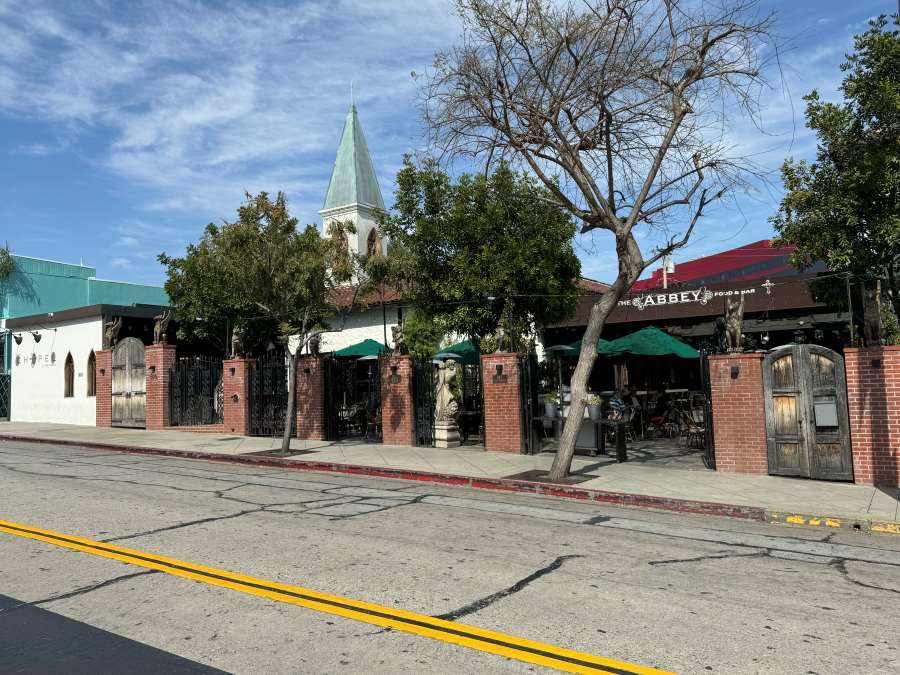
By Paulo Murillo | WEST HOLLYWOOD – When news broke that the Abbey Food & Bar and its sister location the Chapel at The Abbey sold to hotel entrepreneur Tristan Schukraft this past November, the big question on everyone’s mind was, for how much? According to a report by Commercial Observer, the 14,200-square-foot properties at 686 and 692 North Robertson Boulevard traded hands for $27 million.
The listing of both spaces was described as “a generational purchase opportunity to acquire one of the world’s most iconic nightclubs and restaurants, The Abbey and The Chapel at the Abbey, including its tangible and intangible assets with all branding and branding rights to the businesses, and trophy West Hollywood real estate. ‘The Abbey’ business, a fee simple interest of 686 N Robertson Blvd, and ‘The Chapel at The Abbey’ business with its interest in the lease at 694 N Robertson Blvd.”
In other words, David Cooley owned the Abbey property, but he was leasing The Chapel. Rumors alleged Cooley was asking for $60M for the entire package and he settled for $40M. Other sources say the $27M is a closer ballpark for The Abbey property with the final price tag for the bulk of the business after fees at $35M. These numbers have have not yet been confirmed.
According to Commercial Observer, Tristan also bought the business assets. it is not yet known how much he paid for the entire Abbey assets. Real Estate brokers Matthew Luchs and Brandon Micheals of Marcus & Millichap handled the transaction.
David Cooley sold a majority of his stake of The Abbey to hospitality and entertainment company SBE Group in 2006. According to reports SBE paid close to $10 million for a 75 percent stake. Cooley stayed on as President. SBE Group planned to open additional Abbey bars in popular gay destinations across the country, but those plans never panned out. Cooley bought the Abbey back in 2015, a year shy of the Abbey’s 25-year-anniversary. The Abbey recently celebrated 33 years.
Cooley also listed his home for sale in L.A.’s historic Hancock Park neighborhood back in March. Cooley purchased the brick structure designed by architect Henry F Withey for $1.9 million in 2001. The home sold for $6,786,400. His asking price was $7,695,000. The home is widely known for hosting several fundraisers throughout the past four decades.
Cooley made a tearful exit on his last day as owner of two of West Hollywood’s most iconic nightclubs on Thursday, April 11. He officially turned over the reins to new owner Schukraft.
******************************************************************************************

Paulo Murillo is Editor in Chief and Publisher of WEHO TIMES. He brings over 20 years of experience as a columnist, reporter, and photo journalist. Murillo began his professional writing career as the author of “Love Ya, Mean It,” an irreverent and sometimes controversial West Hollywood lifestyle column for FAB! newspaper. His work has appeared in numerous print and online publications, which include the “Hot Topic” column in Frontiers magazine, where he covered breaking news and local events in West Hollywood. He can be reached at [email protected]
The preceding article was previously published at WeHo Times and is republished with permission.
California
Judge & AG Bonta: Ballot measure attacks rights of trans youth
“California should be a safe and welcoming place for everyone, which is why we have longstanding laws to protect the rights of LGBTQ+ youth”
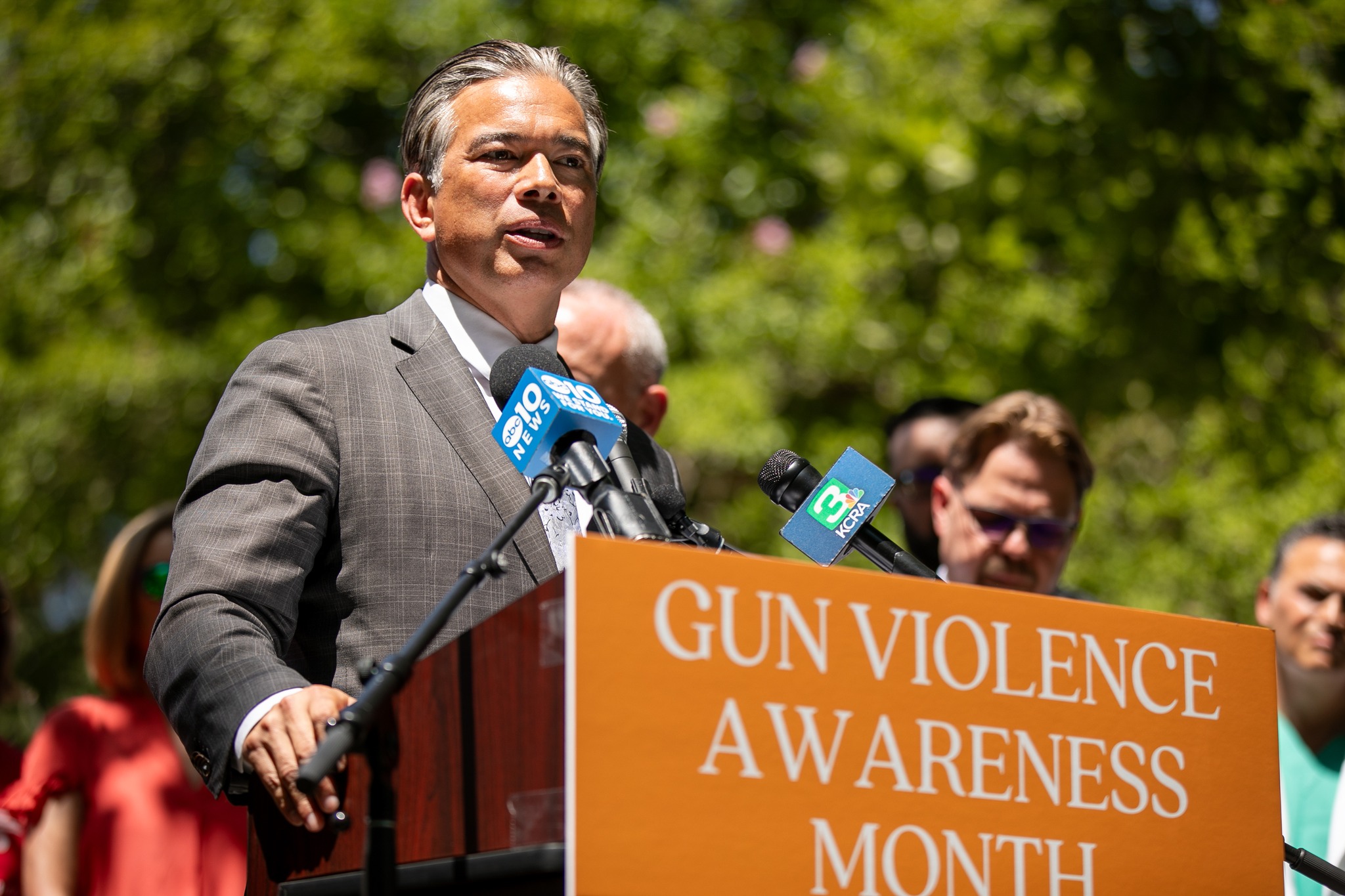
By John Ferrannini, Assistant Editor | SACRAMENTO – A judge has sided with the state of California in the matter of a conservative group that sued over the title and summary Attorney General Rob Bonta assigned to its ballot measure that would strip rights from transgender minors.
As the Bay Area Reporter previously reported, Protect Kids California is gathering signatures for a ballot measure that would ban trans minors from receiving gender-affirming care; ban trans girls from female competitive sports, locker rooms and bathrooms; and require public schools to disclose students’ gender identities to parents if they say they are different than their sex at birth.
Protect Kids California has until May 28 to collect some 550,000 valid signatures in order to place the measure before state voters on the November 5 ballot. Most LGBTQ leaders doubt it will be successful in reaching that threshold.
In preparing a ballot title and summary for the measure, Bonta titled it “Restricts Rights of Transgender Youth.” It prompted the Liberty Justice Center to file a lawsuit February 13 in Sacramento County Superior Court on behalf of Protect Kids California that alleged Bonta’s personal beliefs led to a biased title and summary. Therefore, the center contended the ballot measure proponents should be given 180 additional days for signature gathering without discounting signatures already collected.
“Respondent [Bonta] has demonstrated that he personally, and in his official capacity, is opposed to any kind of notification by a public school to a parent or guardian that his or her child is exhibiting signs of gender dysphoria when the child asks the school to publicly treat him or her as the opposite sex with a new name or pronouns, and to allow the child to use the sex-segregated facilities of the opposite sex,” claimed the groups in their lawsuit.
But a Sacramento Superior Court judge sided with Bonta in a ruling that was first issued tentatively April 19 and was made final April 22. Judge Stephen Acquisto ruled that Bonta’s title and summary are accurate.
“Under current law, minor students have express statutory rights with respect to their gender identity,” Acquisto stated. “A substantial portion of the proposed measure is dedicated to eliminating or restricting these statutory rights. … The proposed measure would eliminate express statutory rights and place a condition of parental consent on accommodations that are currently available without such condition.
“The proposed measure objectively ‘restricts rights’ of transgender youth by preventing the exercise of their existing rights. ‘Restricts rights of transgender youth’ is an accurate and impartial description of the proposed measure,” Acquisto added.
The attorney general’s office has some leeway when it comes to determining ballot titles, the judge noted.
Bonta is “afforded ‘considerable latitude’ in preparing a title and summary,” Acquisto ruled.
He found, “The court’s task is not to decide what language best captures the essence of the proposed measure, but to decide whether the language chosen by the Attorney General is ‘untrue, misleading, or argumentative.’ The Court finds that the Attorney General’s use of the term ‘restricts rights’ does not render the title and summary untrue, misleading, or argumentative.”
A spokesperson for Bonta stated April 23, “We are pleased with the court’s decision to uphold the Attorney General’s fair and accurate title and summary for this measure.”
In an April 19 statement posted to its Facebook page, the Liberty Justice Center said it was “evaluating next steps” in light of the judge’s decision.
“While we are disappointed that the court precluded evidence establishing AG Bonta’s bias, we appreciate that the matter has been taken under submission by the judge,” stated center officials.
In a statement provided to the B.A.R. on April 24, after news that the decision had been made permanent, Protect Kids California attorney Nicole Pearson stated, “The mental gymnastics used to justify this prejudicial title and summary are not only an egregious abuse of discretion that entitles our clients to an appeal, but a chilling interpretation of law that jeopardizes the very foundation of our constitutional republic. We are reviewing our options for an appeal of these clear errors and will announce a decision shortly.”
Tony Hoang, a gay man who is the executive director of statewide LGBTQ advocacy organization Equality California, stated to the B.A.R. that “we are pleased with the judge’s ruling.”
“California should be a safe and welcoming place for everyone, which is why we have longstanding laws in effect that protect and preserve the rights of LGBTQ+ youth and their families,” Hoang stated. “This proposed initiative seeks to undo these critical protections and make our schools and communities less safe for all youth.”
Politico’s California Playbook newsletter reported last month that the Protect Kids California measure is struggling. “The campaign has so far collected less than a fifth of what it would need to qualify for the ballot,” Politico reported. “It does not appear on track to meet a May 28 deadline.”
******************************************************************************************
The preceding article was previously published by the Bay Area Reporter and is republished with permission.
Los Angeles County
New on the LA County Channel
You can watch on Channel 92 or 94 on most cable systems, or anytime here. Catch up on LA County Close-Up here
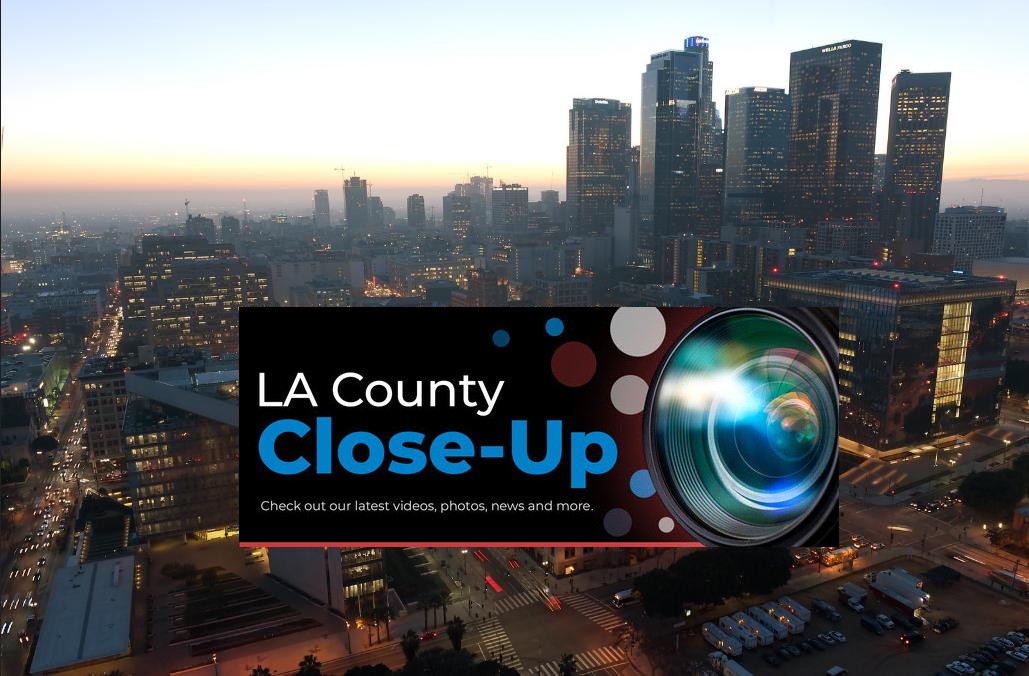
New on the County Channel

Welcome to Budget Quest: the game where billions of dollars and services for millions of people are at stake! Watch this video as Buddy the Budget Wiz navigates the County’s complex budget process to build and fund a new program.
To learn more about the County’s $45.4 billion 2024-25 recommended budget, visit ceo.lacounty.gov/budget.
You can watch more stories like this on Channel 92 or 94 on most cable systems, or anytime here. Catch up on LA County Close-Up here.
In Case You Missed It
April is “Child Abuse Prevention Month” in Los Angeles County

In L.A. County, there are more sleep-related deaths than all other accidental child deaths. These deaths are completely preventable. Accidental suffocation is the greatest risk for babies under age 1. These deaths are silent and quick. It just takes seconds for a baby to suffocate.
Below are some resources for parents and caregivers to learn more about safe sleeping practices:
- Inter-Agency Council on Child Abuse and Neglect: Infant Safe Sleep
- LA County Department of Public Health: Maternal, Child & Adolescent Health
- National Institute of Child Health and Human Development: Safe to Sleep®
At Your Service
DEO Small Business Summits
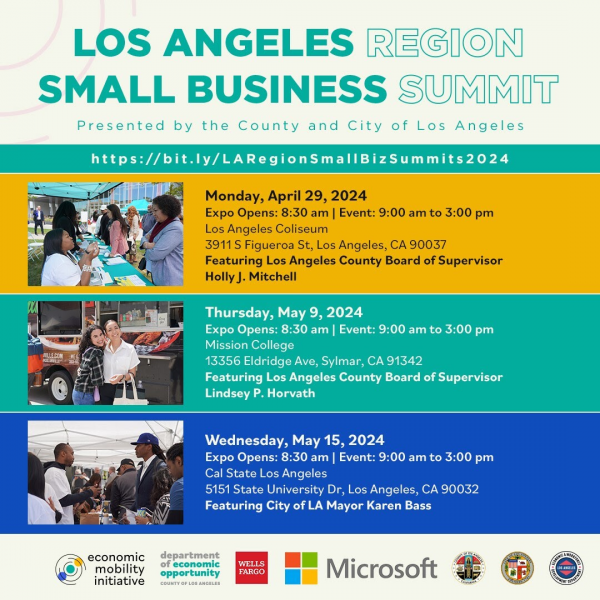
Get ready, LA County! Join the LA County Department of Economic Opportunities and partners for the ultimate small business boost at the upcoming LA Region Small Business Summit series, kicking off Small Business Month on April 29th at the iconic Los Angeles Coliseum with the City of Los Angeles. Five power-packed FREE Summits throughout May, celebrating all small businesses, entrepreneurs, and County residents in style!
Discover a trove of FREE resources, services, and programs aimed at helping your business grow and thrive. From expert panel discussions to a bustling resource expo and beyond – we’ve got everything you need to elevate your business — all under one roof! Ready to supercharge your small business journey? Don’t miss out! Register now for a Summit near you by visiting here.
Out and About
The LA County Fair is Back May 3!

This year the LA County Fair celebrates the medley of communities that comprise Los Angeles County with its theme Stars, Stripes & Fun. LA County is one of the most diverse counties in the nation, brimming with a mix of cultures and communities, and the LA County Fair celebrates them all!
Join us at the Fair as we celebrate all things LA County on Saturday, May 4! Enjoy the LA County Expo showcasing all the great things the county is doing in our neighborhoods and take advantage of this discount offer. Admission is just $8 through May 3 at 11:59 p.m. Admission is $10 the day-of, May 4, 2024.
Get your tickets today and be sure to use the password “LACOUNTY” at check out for the discount price!
Photo Finish

(Photo: Los Angeles County/Mayra Beltran Vasquez)
Click here to access more photos of LA County in action.
Northern California
West Hollywood Poetry Team brings home Poetry Slam Trophy
“The West Hollywood team brought brilliance to the Chill List stage,” said Chill List founder and host Sam Pierstorff
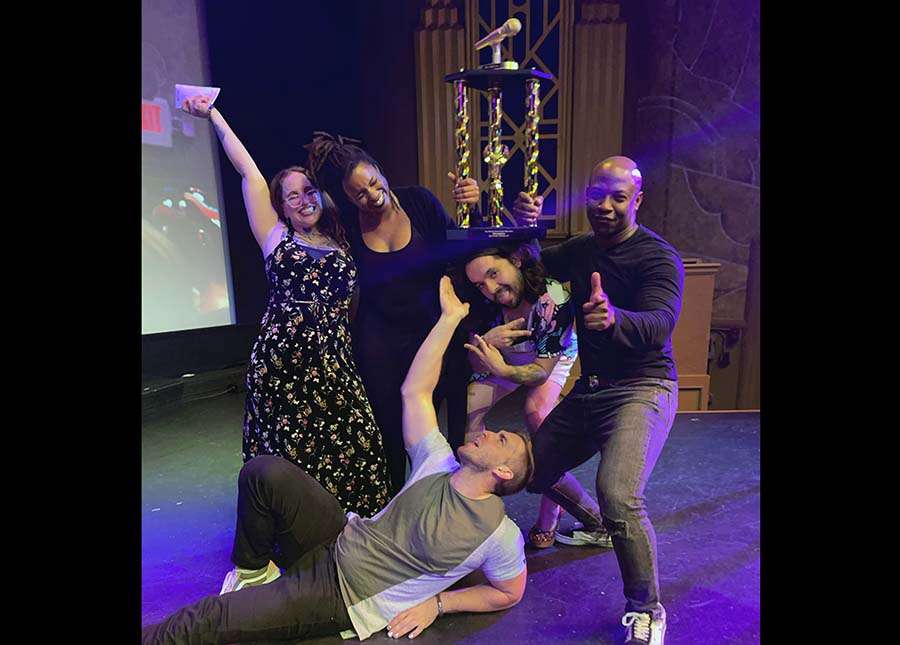
By Paulo Murillo | MODESTO, Calif. – The West Hollywood Poetry Team brought home the winning trophy after competing at the Chill List Poetry Slam Invitational in Modesto on Saturday, April 20. Amongst a competitive field, the West Hollywood poets emerged triumphant, claiming the top prize in a dynamic display of original verse.
The event, renowned for spotlighting the nation’s premier slam poetry collectives, saw teams vying for a $2000 award through a series of group and solo performances. Five judges from the audience awarded points to teams based on the strength of their poems and the quality of their performance. West Hollywood won with a cumulative score of 113.4, beating our competing teams from Oakland (111.4), Salt Lake City (110.1), and Visalia (108.7).
“The West Hollywood team brought brilliance to the Chill List stage,” said Chill List founder and host Sam Pierstorff. “Our Modesto audience loved their range from the humorous to the deeply emotional, intellectual, and inspirational.”
The genesis of the West Hollywood Slam Team dates back to July 2023, initiated by former West Hollywood Poet Laureate Brian Sonia-Wallace and poet/coach Nate Lovell, the architects behind The Mic @ Micky’s WeHo. Comprising both founders and five standout poets from Micky’s, including Meliza “Missy Fuego” Bañales, Dan “Pastiche Queen” Lovato, Tee Gardiner, and Raul Herrera, the team embodies the vibrant spirit of its locale.
According to Pastiche Queen, a team member, the collective mirrors the essence of West Hollywood itself, fostering a sense of community and mutual support. “The team operates as a microcosm of West Hollywood itself; nobody is gonna take care of us like we take care of us.”
Missy Fuego, a seasoned slam veteran and team member, underscored the historic significance of their ensemble. “The West Hollywood team is not only the first slam team in WeHo, it’s the first all Queer/Non-Binary/Non-Labeled Slam Team in North America,” they said. “For years, slam has typically been dominated by heterosexual and cis narratives, with one or two members representing the LGBTQ community. The West Hollywood Slam Team steps forth, proudly, as the first all-inclusive team to prioritize LGBTQ issues and culture as well as regularly center sexual orientation and gender.”
The West Hollywood Slam Team is currently creating a showcase performance with revolving guest poets, and is available for Pride performance bookings through rentpoet.com.
******************************************************************************************

Paulo Murillo is Editor in Chief and Publisher of WEHO TIMES. He brings over 20 years of experience as a columnist, reporter, and photo journalist. Murillo began his professional writing career as the author of “Love Ya, Mean It,” an irreverent and sometimes controversial West Hollywood lifestyle column for FAB! newspaper. His work has appeared in numerous print and online publications, which include the “Hot Topic” column in Frontiers magazine, where he covered breaking news and local events in West Hollywood. He can be reached at [email protected]
The preceding article was previously published at WeHo Times and is republished with permission.
Southern California
Bonta files for permanent ban of Chino school’s forced outing policy
Bonta noted that the policy was detrimental to the physical, emotional safety, well-being, & privacy of trans students
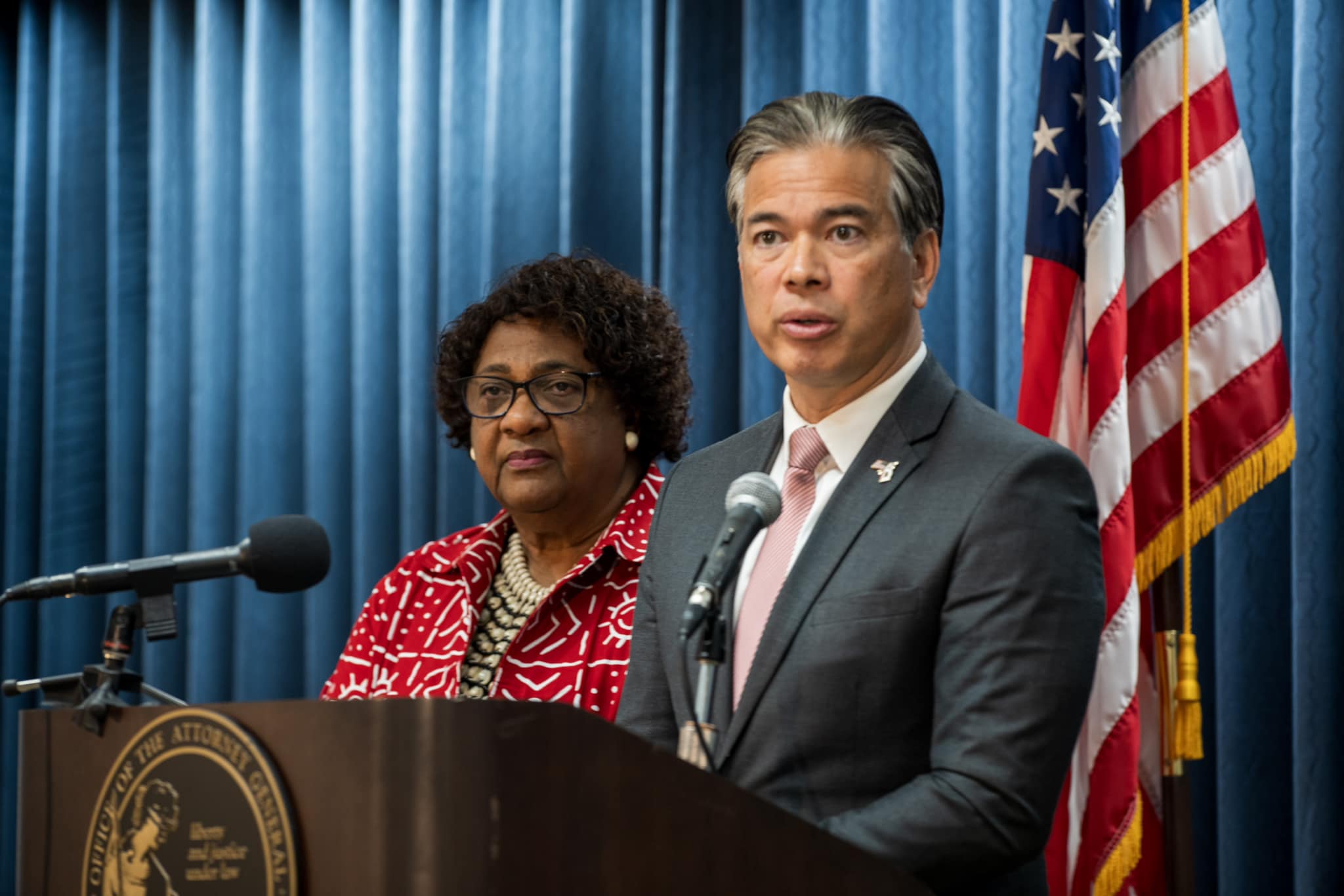
OAKLAND, Calif. — California Attorney General Rob Bonta today filed a motion for final judgment in Bonta v. Chino Valley Unified School District seeking injunctive and declaratory relief to ensure that the Chino Valley Unified School District Board of Education (Board) does not reenact or implement their recently-rescinded forced outing policy.
In a press release, the Attorney General noted that the policy – Policy 5020.1 – was detrimental to the physical and emotional safety, well-being, and privacy of transgender and gender-nonconforming students.
In August 2023, Attorney General Bonta sued to challenge the policy on the basis that it violated students’ civil and constitutional rights under California law, and in October 2023, obtained a preliminary injunction enjoining the facially discriminatory provisions of the forced outing policy. While the District voted to rescind the forced outing policy on March 7, 2024, in response to the San Bernardino County Superior Court’s preliminary injunction order, the District’s Board continues to stand “proudly” by Policy 5020.1, the District’s counsel continues to maintain that it was “common sense and constitutional,” and the District continues to make comments echoing the anti-trans comments they made publicly before enacting the policy.
As a result, Attorney General Bonta is seeking a permanent injunction and declaratory relief to protect students’ civil rights and ensure that the Board does not reenact or implement its original, discriminatory policy.
“Chino Valley Unified has an obligation to protect the safety and well-being of the students it is charged to serve, especially our most vulnerable student communities who are susceptible to violence and harassment,” said Attorney General Bonta. “It took a lawsuit and court order to get Chino Valley to rescind their discriminatory forced outing policy, but even now, the Board has continued to assert that it was lawful, and board members continue to echo the anti-trans rhetoric they relied upon when passing it. Today’s motion seeks to ensure no child becomes a target again by blocking Chino Valley Unified from ever adopting another forced outing policy. As we continue to defend the rights of transgender and gender-nonconforming students, I urge all school districts to take note and ensure every student can enjoy their right to learn and thrive in a school environment that promotes safety, privacy, and inclusivity.”
Even though Attorney General Bonta issued a letter to the Board on July 20, 2023 stressing the potential harms and infringements on students’ civil rights from the adoption of Board Policy 5020.1, the Board enacted the policy nonetheless. The forced outing policy required schools to inform parents, with minimal exceptions, whenever a student requested to use a name or pronoun different from that on their birth certificate or official records, even without the student’s permission and even when disclosure would cause physical or mental harm to the student.
The policy also required notification if a student requested to use facilities or participate in programs that did not align with their sex on official records. In August 2023, Attorney General Bonta announced a lawsuit challenging the enforcement of Policy 5020.1, asserting it violated several state protections safeguarding students’ civil and constitutional rights.
Shortly after securing a temporary restraining order, the San Bernardino Superior Court issued a preliminary injunction against the Board’s forced outing policy in October 2023. The Court held that several provisions violated California’s equal protection clause and discriminated against transgender and gender-nonconforming students, causing them irreparable harm.
In today’s motion seeking a permanent injunction and declaratory relief against the forced outing policy, Attorney General Bonta underscores the importance of the Court’s issuance of final adjudication to guarantee the safety and well-being of transgender and gender-nonconforming students from future identical or similar forced outing policies, and declare that the forced outing policy violates students’ constitutional and statutory rights to be free from unequal and discriminatory treatment on the basis of sex, gender, and gender identity.
As part of today’s motion, Attorney General Bonta urges the Court to issue a final judgment because a live controversy exists, as the District’s conduct signals that it could re-adopt the discriminatory policy absent a final ruling by the Court, the discriminatory message communicated by the enactment of a discriminatory policy must still be redressed, and the case presents clear issues of public interest broadly affecting students, parents, school officials, and teachers that are likely to recur.
The Attorney General underscores the importance of securing final injunctive and declaratory relief against Policy 5020.1 to:
- Prevent the Board from re-enacting the discriminatory forced outing policy in the absence of a final injunction.
- Provide relief against the stigmatic harms inflicted by the Board’s adoption of the forced outing policy.
- Declare that the Board’s forced outing policy violates California’s equal protection and antidiscrimination laws.
Today’s motion also asserts the Board’s plain motivations in adopting Policy 5020.1 were to create and harbor animosity, discrimination, and prejudice towards transgender and gender-nonconforming students, without any compelling reason to do so, as evidenced by statements made during the Board’s hearing.
In discussing the policy before its passage, board members made a number of statements describing students who are transgender or gender-nonconforming as suffering from a “mental illness” or “perversion”, or as being a threat to the integrity of the nation and the family. The Board President went so far as to state that transgender and gender nonconforming individuals needed “non-affirming” parental actions so that they could “get better.”
The Attorney General has a substantial interest in protecting the legal rights, physical safety, and mental health of children in California schools, and in protecting them from trauma, harassment, bullying, and exposure to violence and threats of violence. Research shows that protecting a transgender student’s ability to make choices about how and when to inform others is critical to their well-being, as transgender students are exposed to high levels of harassment and mistreatment at school and in their communities when those environments are not supportive of their gender identity.
- One-in-10 respondents in a 2015 national survey said that an immediate family member had been violent toward them because they were transgender, and 15% ran away from home or were kicked out of their home because they were transgender. Fewer than one-in-three transgender and gender nonbinary youth found their home to be gender-affirming.
- Nearly 46% of transgender students reported missing at least one day of school in the preceding month because they felt unsafe or uncomfortable there and 17% of transgender students reported that they left a K-12 school due to the severity of the harassment they experienced at school.
- Seventy-seven percent of students known or perceived as transgender reported negative experiences such as harassment and assault, and over half of transgender and nonbinary youth reported seriously considering suicide in the past year.
A copy of the motion seeking declaratory and injunctive relief is available here.
Ventura County
“Queers in the Valley” Ojai launches & is ready to celebrate Pride
Queers in the Valley are fundraising for Ojai’s first ever Pride Picnic & Celebration following the 33rd annual Pride Walk on June 30th, 2024
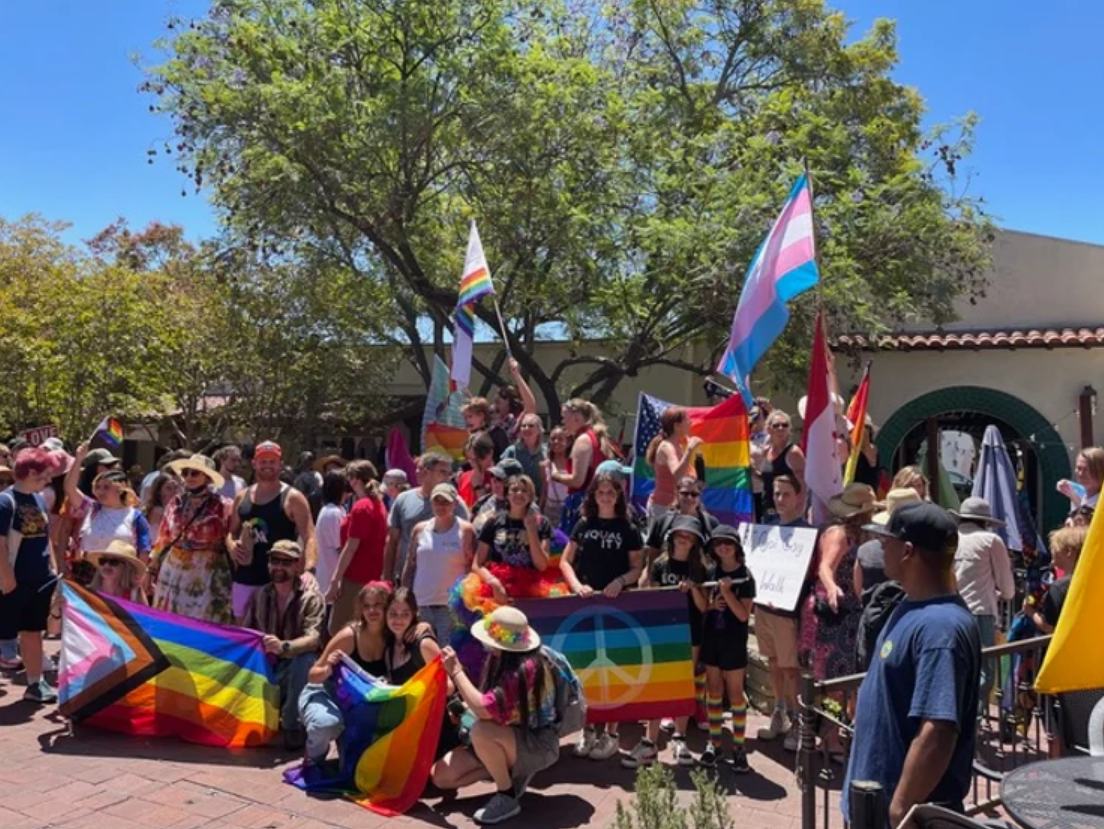
OJAI, Calif. – JoEllen Depakakibo, founder of Pinhole Coffee in San Francisco’s charming Bernal Heights has resettled in northeastern Ventura County with a new mission, a Pride Picnic & Celebration in Ojai.
Depakakibo along with her wife and child now call Ojai home and when not running a Pinhole Coffee EV-van have gathered with other LGBTQ+ community members launching the effort to raise funds for Ojai’s first Pride Picnic & Celebration.
The Pride Picnic & Celebration following the 33rd annual Pride Walk on Sunday, June 30th, 2024. According to a Facebook Post by Depakakibo, organizers enlisted the help of Rachel Lang the first out LGBTQ+ Ojai City Councilmember and support from Ojai Mayor Betsy Stix.
In a GoFundMe page and on the group’s ‘Queers in the Valley’ website the group is soliciting assistance to fund their efforts:
We are Queers in the Valley, and are fundraising for Ojai’s first ever Pride Picnic & Celebration following the 33rd annual Pride Walk on Sunday, June 30th, 2024!
Our mission is to find, build, strengthen, support and inspire the Queer Community in Ojai Valley. Our intention is to make it as Ojai as possible, and lay a foundation of safety and inclusion for our Trans, BIPOC, Disabled, and Low-Income Queer Family.
Help us raise $3000 to:
– pay our Queer Entertainers
– pay our Queer Graphic Designer and build out our website
– print signs and flyers
– rent Libbey Park
– make the event as accessible as possible for BIPOC, Disabled, and Low Income folx through things like ASL interpretation, non-police security, free covid testing, discounts for food options, etc.
– purchase 1-day event insurance
– pay for materials for such things as a kids crafting corner
Send us a message if you want to get involved!
The group noted:
If you are a local Queer artist, vendor or organization that wants to be featured on our website/want to volunteer/have any suggestions or questions…reach out to us (contact info on website).
This group was started with the yearning of mentioned intentions above from many people. Representation matters
Southern California
Equality California decries recall of elected Calexico trans official
During her tenure, Mayor Ureña championed numerous initiatives aimed at improving local infrastructure and public services
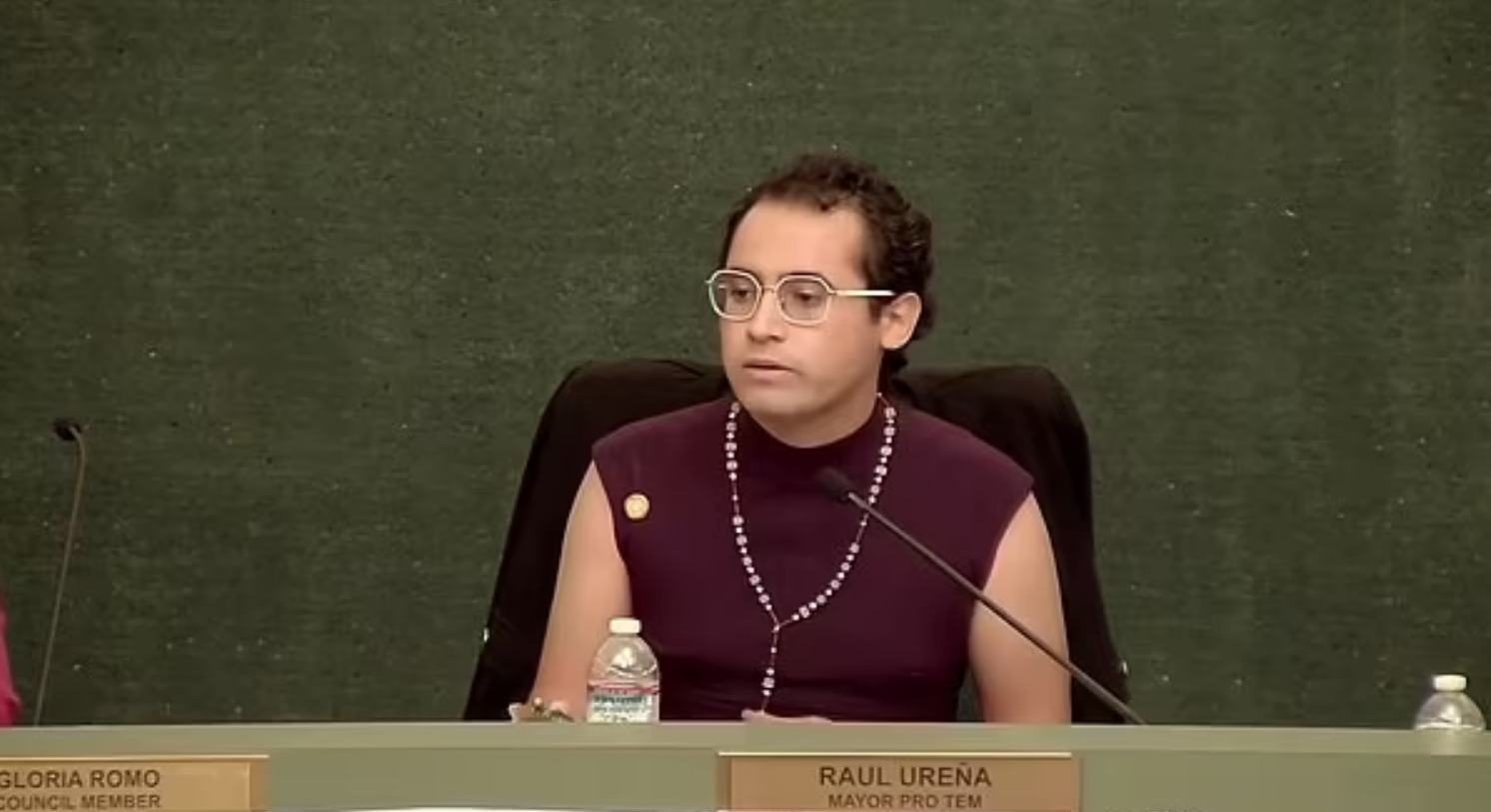
CALEXICO, Calif. – Equality California, the nation’s largest statewide LGBTQ+ civil rights organization, has publicly denounced the recent recall of Calexico Councilmember and former Mayor Raúl Ureña, the first out transgender mayor in the city’s history.
The organization’s response underscores significant concern over what it views as a politically motivated attack leveraging anti-LGBTQ+ sentiments.
Tony Hoang, Executive Director of Equality California, expressed profound disappointment over the outcome of the recall effort, criticizing the focus of the recall on Ureña’s transgender identity rather than his accomplishments in office.
“We are deeply disappointed that a group of far-right extremists succeeded in recalling Calexico’s first out transgender Mayor Raúl Ureña, who has a proven track record of delivering for the people of Calexico,” Hoang said.
“This recall campaign was spearheaded by a group of disgruntled former politicians and littered with misinformation and transphobic rhetoric, focusing on Ureña’s identity and not the successful tangible results she has generated for her city. This was a calculated, anti-LGBTQ+ attack against Ureña that has sadly resulted in her recall and will no doubt lead to backsliding for a community already at a crossroads.
We were proud to support Mayor Ureña throughout this ordeal, and will continue to speak out against any and all anti-LGBTQ+ attacks.”
During her tenure, Ureña championed numerous initiatives aimed at improving local infrastructure and public services while fostering a community environment that valued diversity and inclusion.
The recall campaign, however, argued that new leadership was necessary to fulfill unmet promises such as reducing water costs, revitalizing public spaces, and addressing homelessness and housing shortages.
Ureña posted a Facebook video addressing the recall along with the following caption:
“The recall made a lot of promises. The clock of new administration begins. From now on my decisions will not affect the municipality.
My message to the youth: DON’T QUIT!
My message to the recall: Keep your promises between now and November. We want a standing Calexico:
- All the poles fixed
- All parks to perfection
- Streets and new benches
- Let the cost of water go down
- Downtown Clean
- Zero Homeless
- More Housing
- Police and Fire Department complete
- City Wide Transport
- More recreation for the seniors.
- Line to Mexicali and traffic solved
I wish them luck for the good of Calexico.”
Following the recall’s success, statements from the new administration promised to focus on various infrastructure projects, enhancements to public safety, and improved social services for seniors, pledging to transform campaign promises into tangible outcomes.
The decision to recall Ureña has polarized Calexico, with many residents and advocates worried about the potential regression in civil rights gains. Equality California has pledged ongoing support for Ureña and reaffirmed its commitment to fighting anti-LGBTQ+ discrimination.
For further details on Equality California’s initiatives and stance on this matter, please visit eqca.org.
Related:
Riverside County
Murrieta Valley School Board votes to defy state over trans policy
The policy includes requests by students to use a name that “differs from their legal name or pronouns that don’t align with their birth sex”
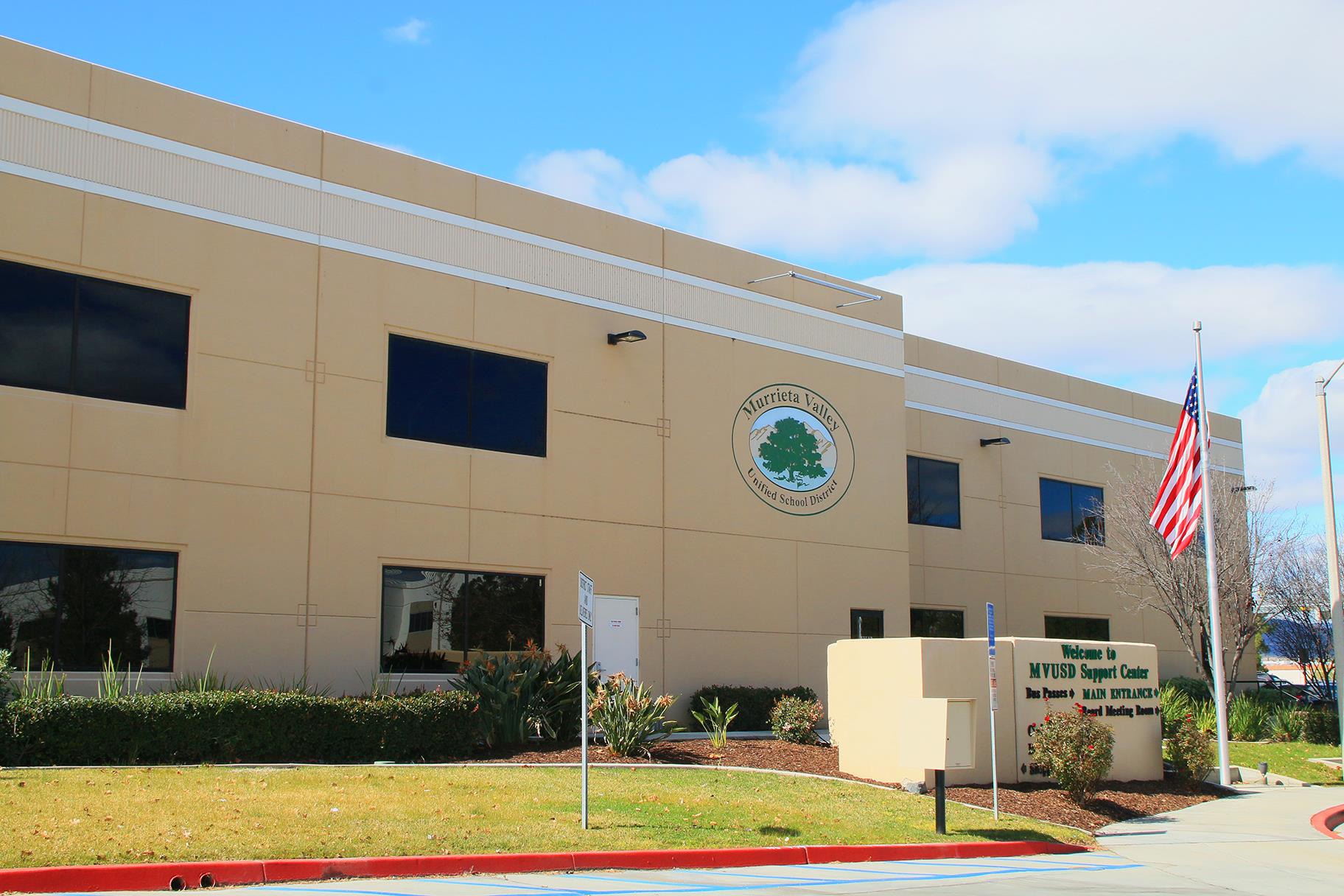
MURRIETA, Calif. – The Murrieta Valley Unified School District Board on Thursday voted 3-2 to defy the California Department of Education’s written order and keep its anti-trans parent-notification policy.
The California Department of Education found that it violated the state’s education codes and warned MVUSD that the policy “provided no educational or administrative purpose that could justify the discrimination of LGBT+ students.” The Department of Education stated the policy “singles out and is directed exclusively toward one group of students based on that group’s legally protected characteristics of identifying with or expressing a gender other than that identified at birth.”
The Board essentially countermanded Superintendent Dr. Ward Andrus’ order to his staff reversing the policy after the April 10 DOE order was received. In an emailed notice sent out last Friday to parents, faculty, and staff members, school district administrators stated that the policy was reversed.
The policy, which was originally proposed by school board President Paul Diffley and trustee Nick Pardue and passed states:
[…] any member of a school’s staff “shall notify the parent(s)/guardian(s), in writing, within three days from the date any District employee, administrator, or certificated staff, becomes aware that a student is: a. Requesting to be identified or treated, as a gender (as defined in Education Code Section 210.7) other than the student’s biological sex or gender listed on the student’s birth certificate or any other official records.”
The policy includes requests by students to use a name that “differs from their legal name (other than a commonly recognized diminutive of the child’s legal name) or to use pronouns that do not align with the student’s biological sex or gender listed on the student’s birth certificate or other official records.”
Last month the MVUSD school board voted 3-2 to keep the forced outing policy on the books even though, according to a Press-Enterprise report, MVUSD Board President Paul Diffley was warned by the district’s law firm, Atkinson, Andelson, Loya, Ruud & Romo (AALRR), that “‘going ahead (with the policy) in such an environment’ could cost the district $500,000 in legal expenses.”
After the board vote, two district educators, Jamie Goebel and Karen Poznanski, filed a complaint with the California Department of Education about the policy due to its “discrimination on the basis of gender identity and expression.”
“This policy not only violated the privacy and dignity of our students but also perpetuated harm and discrimination against LGBTQ+ individuals and their families,” Poznanski told the Press Enterprise once the California Department of Education sided with the teachers last week.
Reacting to the board vote, Tony Hoang, the Executive Director of Equality California told the Blade:
“Yet again, the extremist majority on the Murietta Valley School Board put politics over the safety and well-being of students. These politicians ignored the experts at the California Department of Education and their district staff and doubled down on a policy that is unnecessary, cruel, and opens students up to harm and discrimination.
The school board’s own student member Isabella Dadalt said it best – “if you’re a parent, and you feel threatened by the fact that your student is going to a teacher instead of you, I think you need to rethink your parenting.”
The members of the Murrietta Valley School Board should take note of what happened last month when extremist school board members in Orange Unified and Woodland Unified were successfully recalled after they attacked LGBTQ+ students.
Equality California will continue to for the rights of all students to have safe and supportive learning environments in Murietta Valley, and across the state.”
The Blade has reached out to the California Department of Education and the Murrieta Valley Unified School District Board for comment.
West Hollywood
Bouncer at Heart WeHo arrested in brutal beating of gay stylist
Anyone with questions or information about this incident is encouraged to contact the LA County Sheriff’s Department’s West Hollywood Station
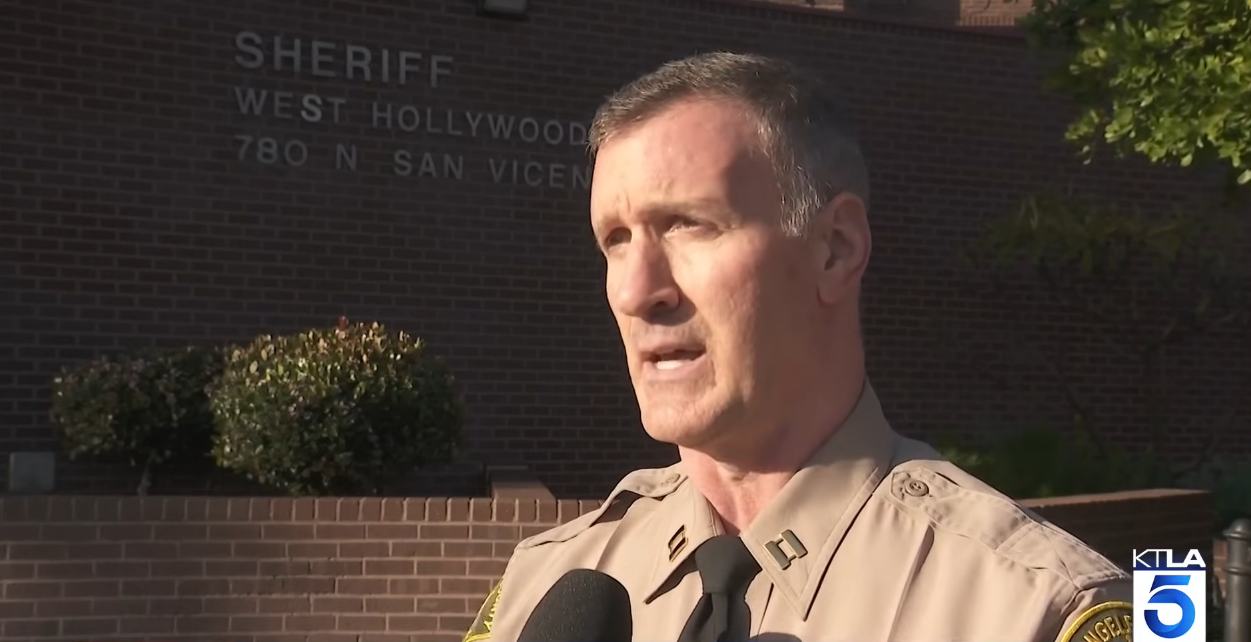
By Paulo Murillo | WEST HOLLYWOOD – An arrest has been made in the brutal beating of gay hair stylist Albert Vasquez, 54. According to a statement by the Los Angeles Sheriff’s Department, a security guard at Heart WeHo was identified, arrested, and charged with battery causing great bodily harm.
The statement by LASD reads as follows:
On Friday, April 05, 2024, at approximately 10:40PM, the victim attempted to enter a nightclub in West Hollywood. The suspect, who was working as a security guard, did not allow the victim entry due to the victim not having proper identification. Both the suspect and the victim engaged in a verbal and physical altercation, in which the suspect punched the victim once in the face. The victim fell to the ground and was transported to a nearby hospital.
The suspect was identified and arrested for battery causing great bodily injury.
Vasquez’s sister, Gloria Jimenez, tells WEHO TIMES that a detective at the West Hollywood Sheriff’s Station reached out to the family earlier today, and she can confirm that the beating happened in front of Heart WeHo. She also said one of their bouncers was arrested.
The family will be allowed to view the surveillance footage to see exactly what happened on Friday night, April 5, 2024, when Vasquez was found in a pool of his blood with two head fractures, bruises to his lungs, a black eye, and scrapes and bruising to his arms and legs.
“They reached out to me and said an arrest has been made,” said Jimenez. “We kept saying it was Heart WeHo and it happened at Heart WeHo and it was one of their bouncers. We want to see the footage, and we’ll be able to see it because we are family, so we can determine exactly where to go from there. We’re glad an arrest was made, and we’re going to take the next step necessary. We don’t know what that step is. He’s still recovering. We don’t know how long his recovery will take. We don’t know.”
Family, friends, and supporters of Albert Vasquez were relentless in getting the story out to the media, and they pressured the West Hollywood Sheriff’s Station to step up the investigation. They also demanded that Heart WeHo release video footage from that night.
Heart WeHo complied and released the following statement:
“Heart WeHo remains deeply committed to the safety and well-being of our community. We are aware of the incident that occurred on April 5th and have been actively collaborating with the West Hollywood Sheriff’s Department to assist in their investigation since the beginning. We have provided the authorities with unrestricted access to our security footage,” reads the statement by Heart WeHo. “We urge anyone with additional information pertaining to this incident to come forward and assist the West Hollywood Department in their efforts to ensure the safety and security of our neighborhood.”
According to authorities, Heart WeHo was asked not to release the footage to family until authorities were able to investigate the footage first.
Jimenez’s sister points out that Heart WeHo turned over surveillance footage to the West Hollywood Sheriff’s Station on Monday, ten days after the incident occurred.
Doctors discovered a second skull fracture on the other side of Vasquez’s head ten days after he landed in the hospital, according to his family. They also discovered that his lungs had bruising after the fact, which went unnoticed throughout his stay at the hospital.
However, despite his newly discovered injuries, Albert seems to be on the mend. He was in a coma for one day when he was brought to the hospital but is currently awake and seems to be aware of his surroundings. He starts therapy this week and is expected to be in the hospital for another week and a half. He has not spoken about what happened to him that Friday night, mainly because he’s heavily medicated, and nurses feel it’s too soon to pressure him to relive the trauma.
Jimenez thanks the community for their support and for being relentless in holding investigators accountable and demanding they get answers. She’s also grateful for the public’s generosity to help cover medical expenses.
Anyone with questions or information about this incident is encouraged to contact the Los Angeles County Sheriff’s Department’s West Hollywood Station Detective Lombera at (310).
358-4028.
The link to GoFundMe campaign is here: (Link)
Related:
******************************************************************************************

Paulo Murillo is Editor in Chief and Publisher of WEHO TIMES. He brings over 20 years of experience as a columnist, reporter, and photo journalist. Murillo began his professional writing career as the author of “Love Ya, Mean It,” an irreverent and sometimes controversial West Hollywood lifestyle column for FAB! newspaper. His work has appeared in numerous print and online publications, which include the “Hot Topic” column in Frontiers magazine, where he covered breaking news and local events in West Hollywood. He can be reached at [email protected]
The preceding article was previously published at WeHo Times and is republished with permission.
-
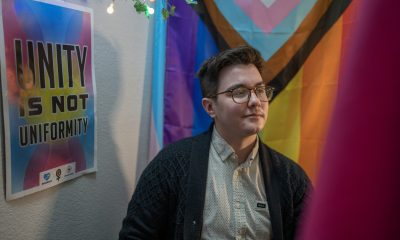
 Tennessee2 days ago
Tennessee2 days agoTennessee: Anti-LGBTQ parents can now foster, adopt LGBTQ kids
-
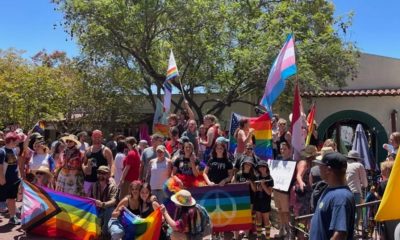
 Ventura County3 days ago
Ventura County3 days ago“Queers in the Valley” Ojai launches & is ready to celebrate Pride
-
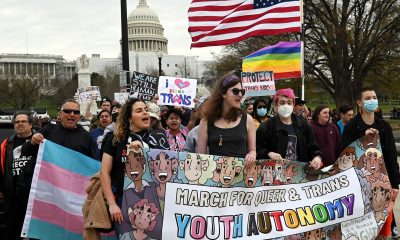
 Research/Study3 days ago
Research/Study3 days ago90 percent of trans youth live in states restricting their rights
-
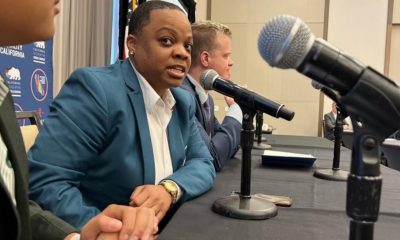
 California Politics3 days ago
California Politics3 days agoRecognizing & celebrating lesbians: Mayor Pro-Tem of El Cerrito
-
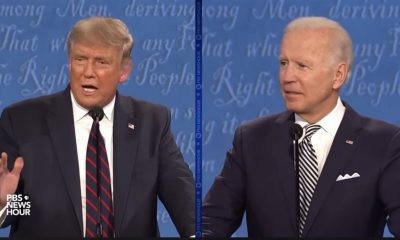
 Politics5 days ago
Politics5 days ago600+ national polls shows Biden & Trump are tied
-

 Music & Concerts4 days ago
Music & Concerts4 days agoHere is the Earth Day anthem we forgot we needed
-
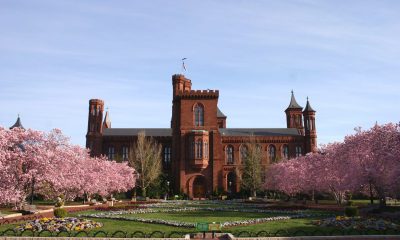
 Politics4 days ago
Politics4 days agoSmithsonian staff concerned about future of LGBTQ programming
-

 Maine3 days ago
Maine3 days agoMaine’s Governor Mills signs trans & abortion sanctuary bill into law
-
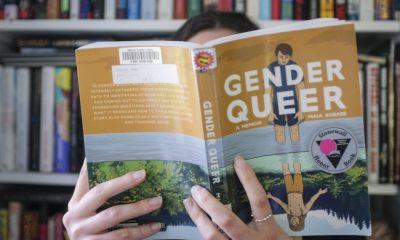
 Florida4 days ago
Florida4 days agoGov. DeSantis denounces ‘weaponization’ of book challenges
-
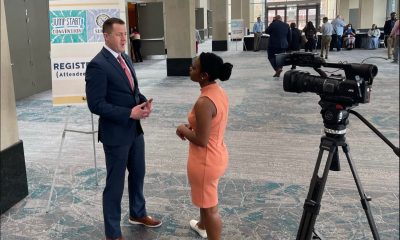
 Louisiana4 days ago
Louisiana4 days agoLouisiana’s Superintendent of Education decries new Title IX rules

